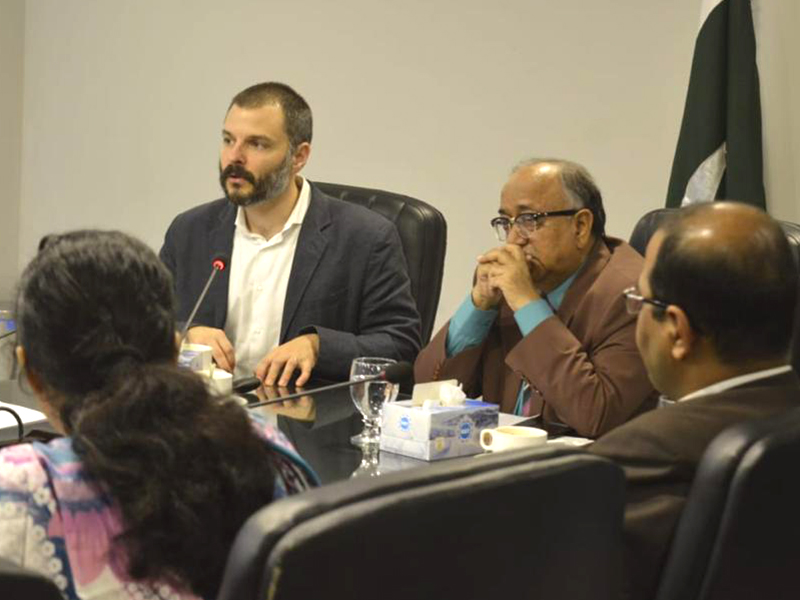The associate professor in the School of Communications has published his work in the Journal of Media Education and Asia Pacific Media Educator, and has a forthcoming article in the Journal of Magazine Media.
Three years ago, while teaching his Communications in a Global Age class, Associate Professor David Bockino stumbled into a research topic and subsequent journal article he’d later call the “most fascinating thing I’ve ever done.”

In the course’s textbook, “Converging Media,” Bockino noticed an error in one of the citations – and then another. It was a teachable moment for his class, he recalled.
“Since fake news and fact-checking were a big part of the national conversation at the time, I used the mistakes to teach my students about accuracy, proofreading and numerical literacy,” Bockino wrote later.
Eventually curiosity got the best of him, and Bockino delved deeper into the textbook’s citations, fact-checking all 311 in the book published by Oxford Publishing. One by one he checked each citation and compared its content to the information cited as the source.
In his analysis, Bockino identified 51 errors across 15 chapters. The inaccuracies ranged from wrong sources and outdated information to misrepresentations of academic research studies. These findings served as the basis for his recent article, “A Textbook Example: Fact-checking a Popular Introductory Mass Communication Text,” published by the Journal of Media Education.
In his article, Bockino wrote that given the uneven opinion of the news media, and what constitutes a fact, “details matter more than ever,” he said. “Sourcing matters more than ever. This is what we, journalism and mass communication educators, constantly preach to our students.”
Bockino concluded his journal article with a charge for textbook authors and publishers to follow the same “stringent” editing and fact-checking process that “we plead our students to abide by day in and day out,” he said.
This article on fact-checking textbooks is one of three published works Bockino has authored in recent months – all three sharing a common thread of journalism and mass communication (JMC) education.

With a grant from Elon’s Center for Research on Global Engagement supporting part of the project, Bockino examined JMC education in Pakistan as a case study, exploring the consequences of increased homogenization of communication education around the world. His research was published by the Asia Pacific Media Educator under the headline, “Institutionalized Education: Journalism and Mass Communication Education in Pakistan.”
Utilizing a qualitative method that relies heavily on actor-network theory, Bockino and coauthor Amir Ilyas, a scholar at the University of the Punjab (Lahore, Pakistan), identified key moments and people in the trajectory of five Pakistani programs, exploring the connection between these programs and the larger JMC organizational field. The research also allowed Bockino and Ilyas to explore both the positive and negative consequences of increased global engagement and collaboration among international scholars.
Lastly, in a forthcoming article titled “Organizing the academy: The evolution of the U.S. News & World Report college rankings,” Bockino conducted a thematic and historical analysis of the publication, concentrating on its rankings from 1983 through 2010.
While several studies have analyzed the influence of U.S. News & World Report’s college rankings in regard to student or institutional decision making, no previous study had taken the rankings themselves as the object of analysis. Bockino subsequently used his findings to discuss why the rankings continue to play such a “critical albeit contentious role” within the higher education environment.
This new article will appear in the summer edition of the Journal of Magazine Media.
“All three studies are about journalism and mass communication education: textbooks, rankings, and collaboration between schools,” Bockino said. “They all emerged from my entrance into the academic world nearly a decade ago and my interest – fascination – in how things were done and how decisions were made.
“COVID made these even topics more interesting,” he added. “The whole virtual environment kind of gives us a chance to reset on some of the stuff that might be a little inefficient or ineffective. It will be interesting to see if there are any major changes in curriculum construction, teaching style, conference formats, etc.”



